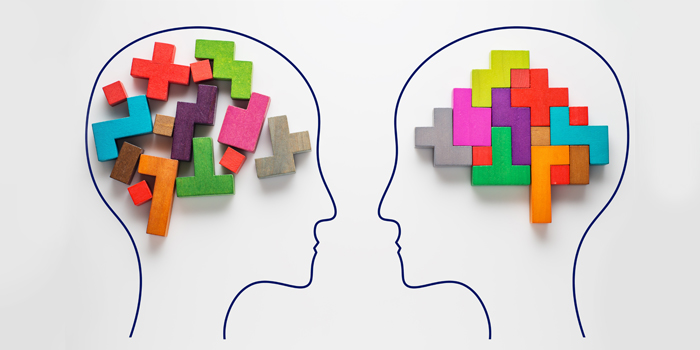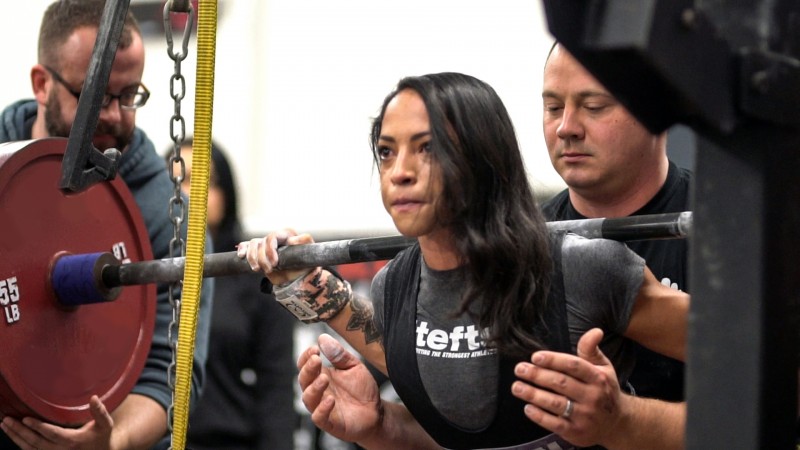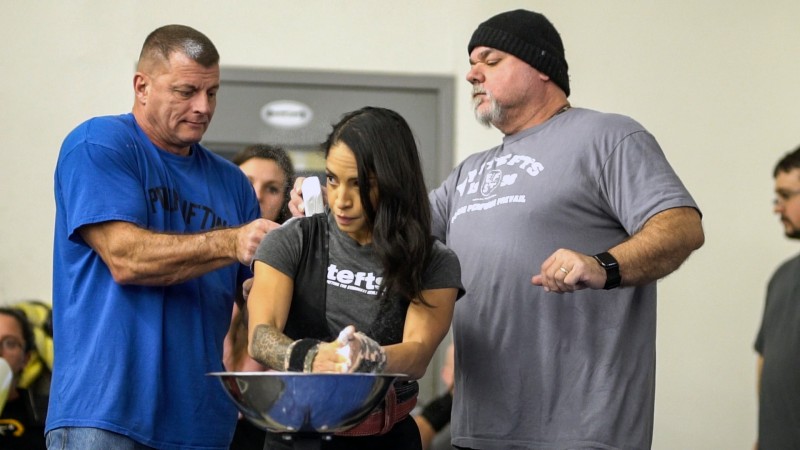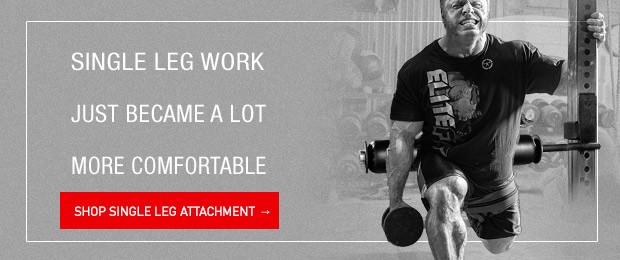
Four years ago, after competing at XPC Finals at the Arnold Classic, I decided to sit down and write about the struggles I was having with my mental health in the hopes that it would encourage those dealing with similar things. In the log post, I talked about a lot of things that I hadn’t told anyone else before, and things that, as I re-read them today, are almost hard for me to believe really happened.
The log post was called “It WILL Get Better: A Message for Those Struggling with Mental Illness,” and the feedback I received (both publicly and privately) from the content was encouraging, challenging, and, most of all, eyeopening. The number of competitors and regular lifters who struggled with similar (and far worse) things was greater than I had expected. The feedback from the post (and the lack of resources that many people cited) prompted me to write a series of articles called Mental Health & the Strength Athlete, as well as to create a podcast called Peak Mental Performance, where I interviewed different experts on topics relating to mental health and athletic performance.
RELATED: "It WILL Pay Off": A Message for Those Struggling with Mental Illness
Since the time of that original post, a lot in my life has changed, and this year, in particular, I’ve done a lot of reflecting on my experiences over those years and on my 20s as a whole. My perspectives on things continue to evolve on a daily basis, and there are a lot of things in that original post that I think differently about now or that I wouldn’t write about in the same way today. To go deeply into each one of those would take more than an article. But rather than regretting writing anything I did, or editing the original post, I thought it might be helpful for readers if I talked about some of the things I’ve learned in the four years since it was written. If you haven’t read the original post, I recommend giving it a quick read to give you context for the rest of this article. In that context, here are four things I’ve learned in the time since then.
Sometimes humility is learned the hard way
Generally, I’ve always been a pretty reserved person, and I don’t think anyone over the course of my life would necessarily label me as “cocky.” In some ways, however, being someone whom people generally consider to be humble has allowed my pride to go unchecked in different areas of my life that aren’t so obvious. We all struggle with pride in different ways, and you could make the case that even our most self-conscious/low-self-esteem times are the result of our desire to connect everything to “me, myself, and I.” This kind of pride has led me to be self-righteous about things that just covered my own brokenness and put myself at the center of friendships, relationships, and decisions.
I’m sure that like anyone, pride will be a lifelong battle for me, but the humility I have learned to this point has been the result of two difficult things: the challenges I’ve faced and the unhealthy ways I dealt with them. The first has been a number of things that were no fault of my own, many of which I outlined in that first post. These things have taught me humility because of the way they removed my ability to just muscle my way through things and prove that I’m somehow the ultimate badass who can fix everything in my own life. The brokenness I felt in some of those times, and the dependence I had to have on God and on others make it a lot harder to point to myself and claim to have all of the answers or to be better than anyone else.
The second lesson I gained was through the unhealthy ways I coped with the first item. I won’t go into all of the details, but the biggest takeaway is that I treated a lot of people and situations poorly and selfishly over the years, and did exactly what I mentioned earlier: place myself at the center of the universe. I could sit and try to rationalize or make excuses for the various mistakes I’ve made, but ultimately, that perspective is a symptom of the larger problem of pride.
Any temptation I have to be prideful or to feel better than someone else quickly gets extinguished by the smack in the face that is reflecting on my mistakes of the past. Although these things are tough to reflect on, I can see how they’re being used to continually reinforce humility in my life.
Humility learned from brokenness can lead to better empathy
A by-product of those lessons in humility has been more empathy and compassion for others. There’s nothing like losing control over aspects of your life and making a bunch of mistakes to make you look a lot more graciously on the mistakes and flaws of others. Obviously, this doesn’t mean giving everyone in life some sort of free pass. But knowing the grace that I receive on a daily basis in spite of my own failures gives me a different view of the other imperfect people around me.
When we face various challenges in life, we can either choose to allow them to make us bitter and resentful toward others, or allow them to give us more compassion for the challenges of those around us. I certainly don’t do this perfectly, but often when I’m in the middle of a “what the hell is wrong with this person” mental rant, I’m quickly stopped in my tracks by the reality that others (and especially God) could easily view me the same way based on my daily mistakes.

When I tend to white-knuckle life, dependence is my greatest need
Anyone who knows me knows that I’m very much a planner and a strategic thinker. This makes me very good at certain aspects of my life with my job and training/competing, but it also quickly crosses the line into anxiety and into having too tight of a grip on the things I can’t control. When things are out of control in areas of your life, it has a funny way of forcing you to loosen that grip. The challenges I’ve faced, and even positive things that are just unpredictable have continued to reinforce the truth that I can’t predict life and that I can’t control every aspect of the future. This forces humility, empathy, and, most importantly, dependence. In this day and age, we don’t like the idea of depending on others, but sometimes when we’re forced to loosen our grip on self-sufficiency and depend on something outside of ourselves, it teaches us lessons we would otherwise never learn. The dependence I continue to learn, both on God and on others, has developed areas of my life that I otherwise would’ve protected from growth.
All things work together for good
If you haven’t been able to tell to this point, my belief in God and His role in my life influences my perspective on all of these lessons. I know that many of those reading this article don’t have any desire to pursue God in their lives, and my hope is that there are positive things to take from this article regardless. But in the theme of this final point, my view of the role that all of my experiences and decisions have played in my life are held together by the glue that is my belief in God’s sovereignty (and it would be disingenuous to try to hide that from this article).
There is a Bible passage in Romans that reads: “And we know that all things work together for good to those who love God, to those who are called according to His purpose.” I wouldn’t want to relive any of the things I wrote about in my original post, and the same goes for many things that I didn’t write about or that have happened since. But in all of those things, I continue to see small glimpses of how they work together for good in my life. Even the complicated experiences I had with medications taught me a lot that allows me to have more compassion for and understanding of others.
In the original post I wrote, I discussed how the combination of three medications finally allowed me to sleep and get relief from many of my symptoms for the first time in my life. In addition to those positives, however, when I tapered off of those medications the following year, I experienced what I could only describe as a living nightmare both emotionally and physically. At the time of this article, I’m not taking any medications, but those positive and negative experiences from the past have given me an appreciation for both the benefits and the negatives of medication, as well as and what many people are going through in navigating that world. I see how these experiences (both the good and the bad) continue to work for good in my life and allow me to better serve others. Even the mistakes I made as a result of what I was going through have served to work for good in both my life and the lives of others whom I hurt.
It seems like every few weeks, I interact with someone who shares a personal challenge with me, and I’m able to be there for him or her in a way that I’m certain wouldn’t be the case had I not dealt with the issues I had. Despite the frustration and regret I feel about a lot of the things that have happened to me, I get glimpses of how God uses them in my daily life to help others, and it gives me hope for all things continuing to work for good.
I’m in a continual process of growing and learning, and this article is as much a reminder to me as it is to encourage readers. I don’t do any of this perfectly. I still struggle with a lot of challenges. But I am continuing to see how this all wraps into the greater redemptive story of my life as well as the lives of those around me. Ultimately, four years later, “I’m not where I want to be, but I’m not where I was.”
Header image credit: Serhii Radachynskyi © 123rf.com












This is a very interesting perspective. In regards to this topic, I recently got back from South America where I spent 2 weeks doing ayahuasca and learned a great deal. Feel free to reach out in you want and we can discuss it.